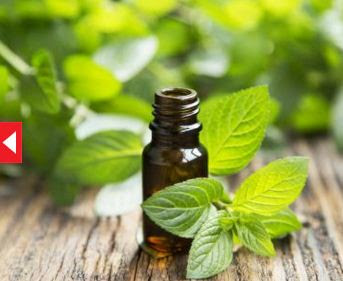Peppermint
For centuries this strongly fragrant herb has actually offered alleviation for indigestion, colds and also headache. Today, medicinal peppermint is most prized for its capability to relieve the digestive system tract, easing indigestion, irritable digestive tract disorder and also various other grievances. Peppermint's stomach-settling capacity makes it a popular component in after-dinner mints, although few confections have much pepper mint oil.
Just what is pepper mint?
Peppermint is grown worldwide for use as a flavouring broker and also organic medication. The major active component of pepper mint is its unpredictable oil, which is comprised of more than 100 various substances. The oil's restorative result comes generally from menthol (35 to 55 percent of the oil), menthone (15 to 30 per cent) and menthyl acetate (3 to 10 per-cent). Medicinal peppermint oil is made by steam-distilling the parts of the plant that grow above the ground.
What peppermint does
Specifically effective in dealing with digestive problems, pepper mint eases aches as well as unwinds intestinal tract muscle mass. It freshens the breath as well as might clear nasal blockage as well.
Positive aspects of peppermint
Pepper mint oil unwinds the muscular tissues and sphincters of the digestion tract, assisting ease digestive tract cramping and also gas. Its antispasmodic impact likewise makes it useful for reducing the signs of short-tempered digestive tract syndrome, a typical condition defined by abdominal pain, rotating bouts of irregular bowel movements as well as looseness of the bowels and even acid indigestion. The menthol in peppermint supplements food digestion due to the fact that it boosts the circulation of natural digestive juices and even bile. This explains why pepper mint oil is often consisted of in non-prescription antacids.
As a tea or oil, peppermint serves as a mild anaesthetic to the stomach's mucous lining, which helps in reducing queasiness as well as motion sickness. The tea may reduce signs of diverticulosis, consisting of gas as well as bloating.
How to take pepper mint
- You can take pepper mint in a pill, fluid or oil or utilize it dried out or fresh making a tea.
- Fallen leave infusion: 3 to 6 grams 3 times a day.
- Fluid extract (1:2): 10 to 30 millilitres a week.
- Tea: To relieve gas and even calm the belly, make a tea by steeping 1 or 2 teaspoons (5 to 10 grams) of dried out peppermint leaves in a mug of quite warm water for between 5 and 10 mins; see to it you cover the mug to maintain the unstable oil from getting away; for congestion, drain to 4 mugs (1 litre) of peppermint tea a day.
- Important Oil - Orally for digestive system problems: 0.2 to 0.4 millilitres 3 times a day in dilute prep works or in suspension.
- Cranky bowel disorder: attempt enteric-coated capsules consisting of peppermint oil, due to the fact that they launch the oil where it's required most-- in the small and even large intestines instead of in the stomach; take 1 or 2 capsules (containing 0.2 millilitres of oil a pill) 3 times a day in between dishes.

No comments:
Post a Comment